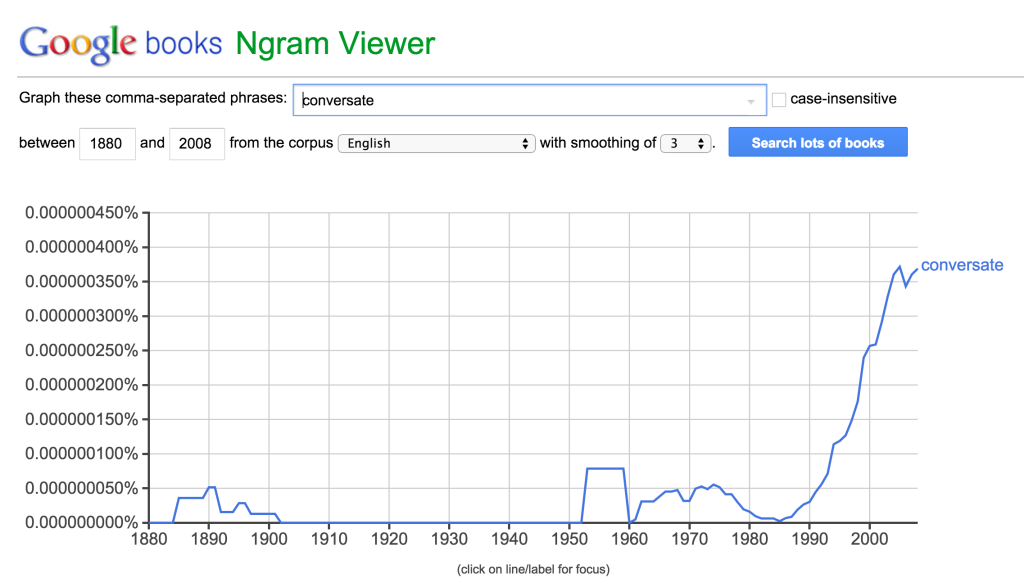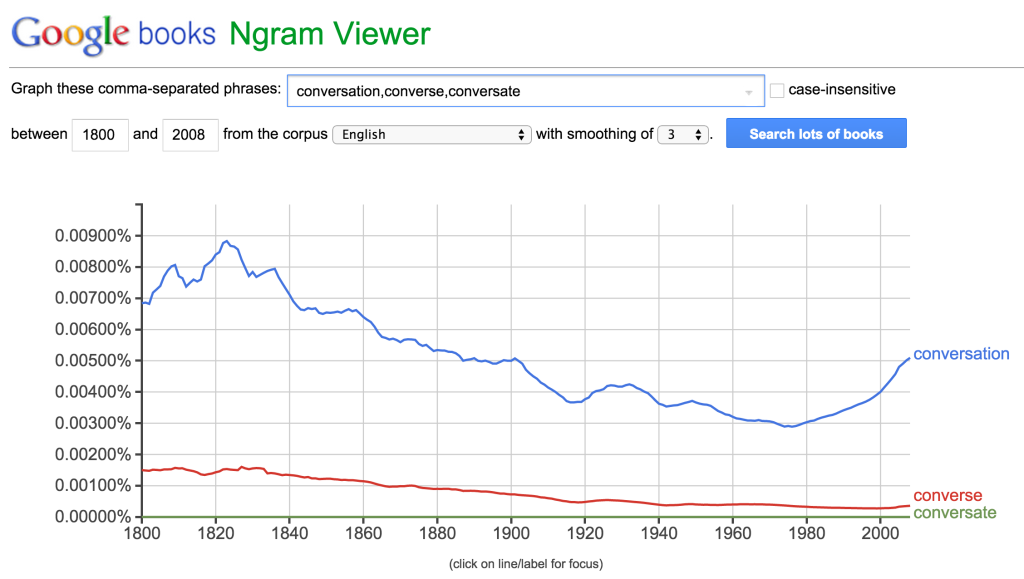I’m helping score the Analytical Writing Placement Exams for incoming UC freshmen this week. For those of you not familiar with the exam, 17 and 18 year olds who have been admitted to a UC wake up at some ungodly early hour of a Saturday morning, sit down, read a passage, and write an essay. It’s my job to look for things like sentence variety, organization and structure, arguments, analysis, and a general understanding of the prompt. Of course, multiple grammatical errors, poor variety in vocabulary, and numerous misspellings can hurt, but I can be forgiving for one or two misspelled words. After all, they don’t have access to spellcheck or wikipedia, and no one writes perfectly well without a chance to edit, especially on a Saturday morning when you’re 17.
The prompt this year has to do with socializing with strangers. One “error” I’ve seen in many essays (of a variety of skill levels, including those scoring “clearly competent”) is the use of conversate instead of have a conversation or converse. But is this really an error?
The first thing you must understand is what makes a word real. Go on, click the link, watch the TED Talk, come back when you’re done. I’ll wait.
Language change is constantly happening. “An apron” used to be “a napron” (related to “napkin”) but since almost nobody who used aprons was literate back in the day, the line between “a” and “an” got fuzzy in speech and the N got shifted over. Because this happened hundreds of years ago, no one gets up in arms about people not using the correct form of “napron.” Other than children and the now-archaic brethren, English has almost lost it’s -en ending for plurals, and oxen is giving way to oxes in some dialects.
Yet when I told some friends that I had noticed many of these 17 and 18 year olds using conversate in their essays, people got upset. People argued that a word already exists: converse. You converse, or have a conversation, but you do not conversate, people insisted. Most people accept that oxen is a funny plural, and agree it ought to be oxes. The use of conversate is no different than the use of apron or oxes. You create creations, you abbreviate abbreviations, you conjugate conjugations, so why not conversate a conversation? It’s perfectly logical.
Moreover, it’s becoming more frequent. Converse has been on a steady decline since the 1830’s, and conversation recently enjoyed a small uptick in frequency:
There’s a good chance these students, born in the late 1990’s, have barely even been exposed to converse but have has a lot of exposure to the word conversation. But what happens when you zoom in on just the word “conversate”?
As it turns out, this non-word everyone is upset about has been around since the 1880s. Sure, it was extremely infrequent and sporadically used for a hundred years, but its use has been on a very steady incline since the early 1980s.
I wouldn’t be surprised if conversate is the “real” word and converse sounds stuffy and archaic by the 2080s.
Haters gonna hate, potatoes gonna potate.



You must be logged in to leave a reply.